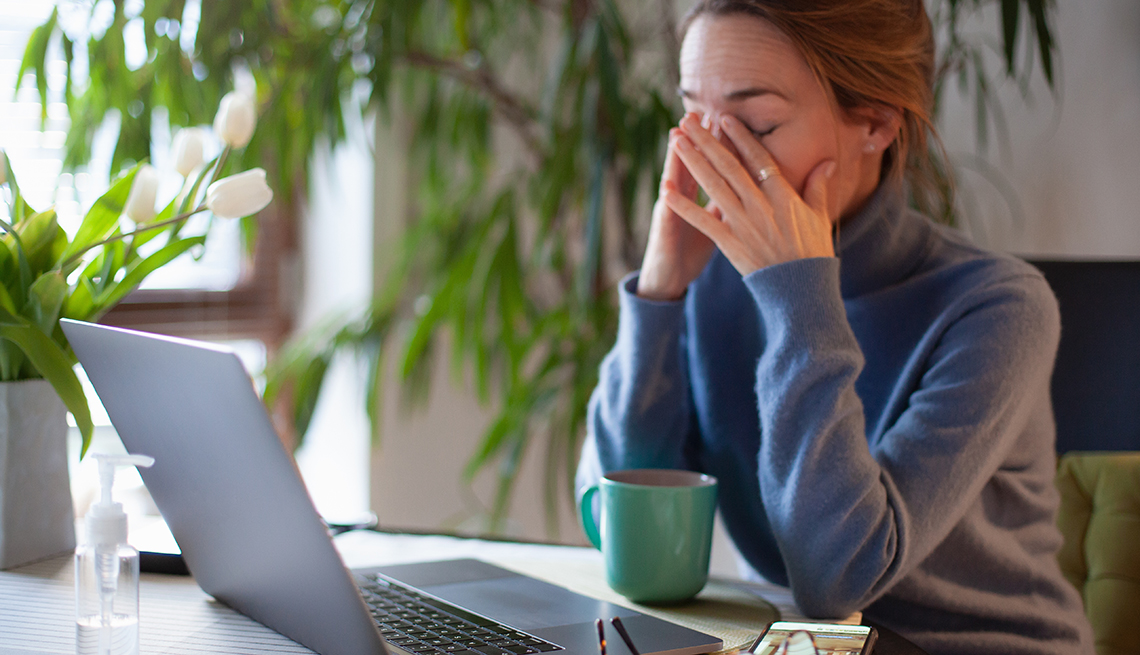AARP Hearing Center
Feeling fatigued during what seems like a never-ending pandemic? Join the club. Whether you feel like you're languishing or just lacking the energy to head back to the office this fall, you may be one of many Americans who can't quite shake pandemic-related malaise.
"We're at home and we're stressed and the impact of that is to develop a sort of mental and emotional lethargy,” says Margaret Wehrenberg, a clinical psychologist in Saint Charles, Missouri, and author of Pandemic Anxiety: Fear, Stress, and Loss in Traumatic Times.
And yes, your pandemic habits can also play a role — especially if things like regular exercise or healthy eating went out the window sometime during the lockdown. “A lot of people who thought it was going to be a six- or 12-week thing let their diet go,” says Kathryn A. Boling, M.D., a primary care physician at Mercy Medical Center's Mercy Personal Physicians in Lutherville, Maryland. And instead of, say, going to work and hustling through a commute, “we just walk from the bedroom to the living room and sit in a chair most of the day, except for when we get up to snack.” A year of such habits has likely contributed to the general lassitude.
But if you're over 50 and worried that feeling worn out may just be your new normal, know this: Being tired is not a typical aspect of aging. At least it shouldn't be when you're in your 50s, 60s or 70s. “It does not have to be part of aging until you get pretty advanced,” Boling says. “If you're 90, you're more likely to run out of gas.”
When ‘tired’ means depressed
Of course, fatigue can also result from many underlying physical and mental health issues, such as depression. Low energy and tiredness are indeed key features of this common mood disorder.
"One of the ways to tell if you're fatigued from depression, or not, is asking yourself if you feel motivated,” Boling says. “If the fatigue is more like, ‘I don't care. I don't want to do anything. I don't want to get up,’ or are you really wanting to do things, but you just feel physically tired?” If it's a “de-motivated” fatigue or you're feeling a sense of hopelessness along with the fatigue, she says, then you may be depressed.
"Traditionally we say depression is when people have what's called anhedonia, where the things that they used to do that gave them pleasure no longer give them pleasure,” adds George Abraham, M.D., president of the American College of Physicians. If that's the case, it's wise to see a doctor and weigh the options for treatment.






































































